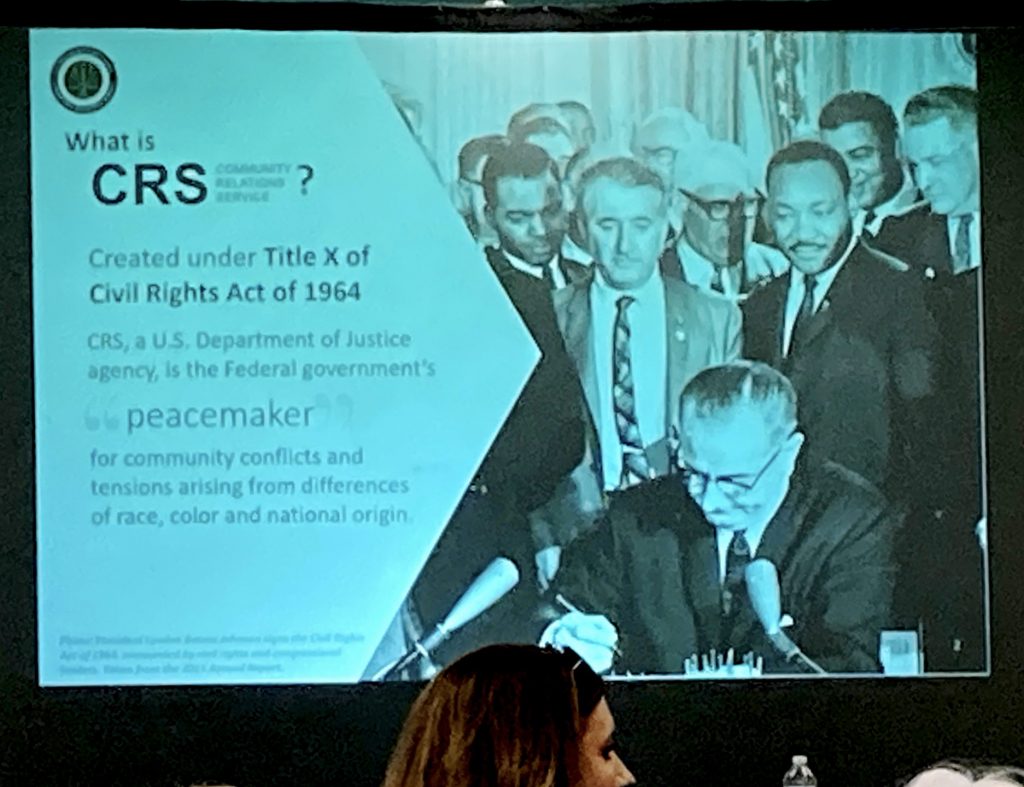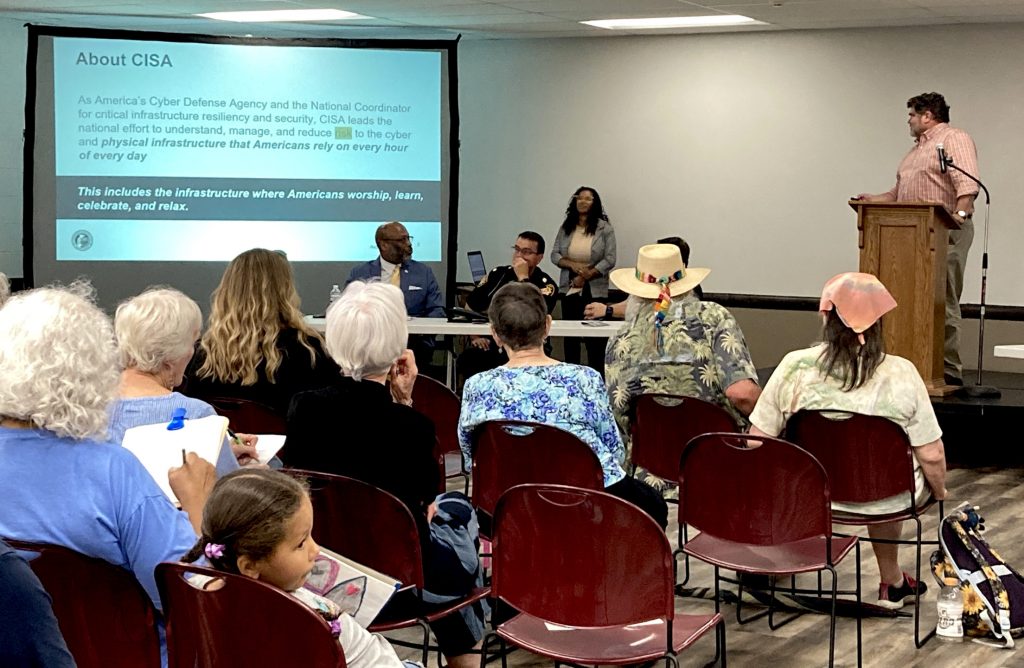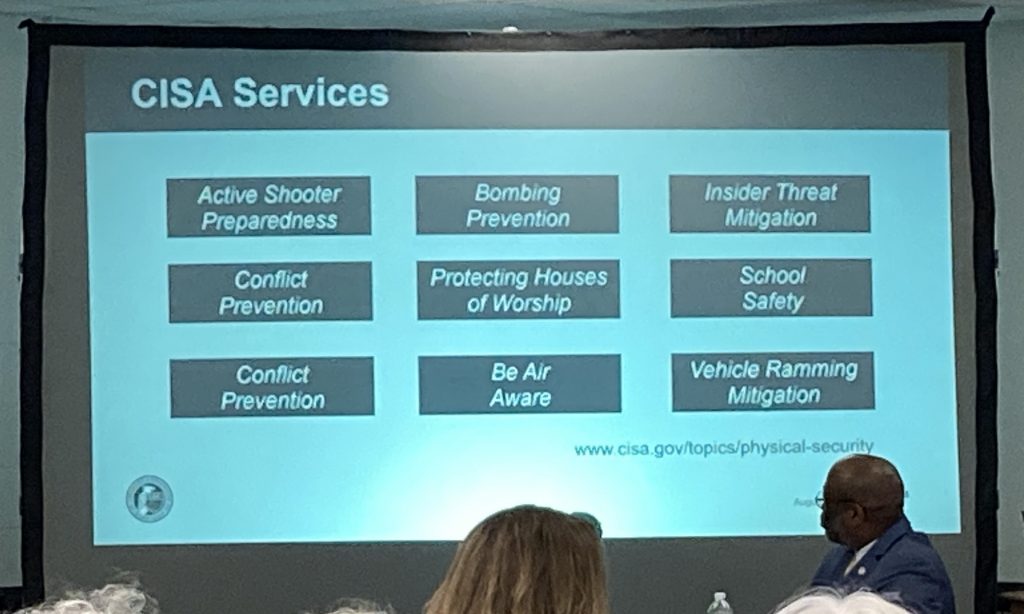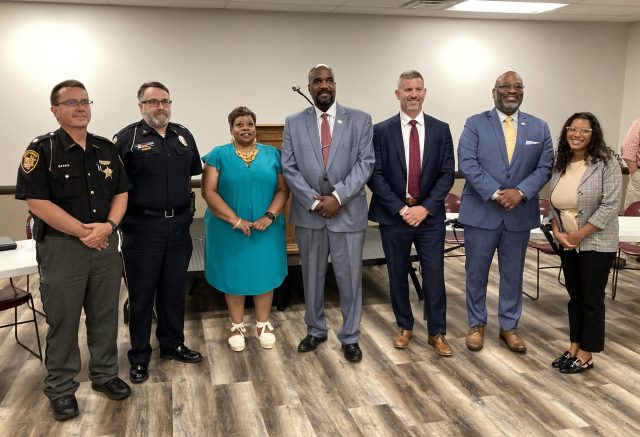
Chillicothe — Six officials gave short presentations on fighting hate crimes in the “United Against Hate” forum held in the library annex Wednesday evening.
About 125 people attended the two-hour event in a meeting room of the annex of the Chillicothe & Ross Public Library. Continuing from my first story on the event, where I focused mainly on U.S. Attorney Kenneth Parker, other officials followed him.
Police Chief Ron Meyers read the state’s definition of ethnic intimidation. He also said he plans to host a forum soon on “how to stay safe in a house of worship.”
Major Michael Preston of the Ross County Sheriff’s Office said he was representing Sheriff George Lavender, who was “recuperating at home.” He said the department must follow state law on hate crimes, which is slim and focuses mainly on ethnic intimidation.

Sean Fisher of the Community Relations Service (CRS) of the U.S. Department of Justice explained that they are “America’s Peacemakers.” It was established under the Civil Rights Act of 1964, which was amended in 2009 to cover more than just race – though he pointed out that 60% of hate crimes fall under race.
Fisher said the Community Relations Service is the federal government’s “peacemaker for community conflicts and tensions arising from differences of race, color and national origin.”
He said the CRS has four pillars: impartiality, volunteerism, confidentiality, and no cost. The services they offer are facilitation, mediation, consultation, and training.

Last was Mike Chambers, a protective security advisor with the Cybersecurity and Infrastructure Security Agency (CISA) of the U.S. Department of Homeland Security.
He said risk is the major factor they deal with, and look for ways to “dial it down” to reduce vulnerability. Drones area a major new factor they must deal with, along with phishing.
Chambers said they are available to advise infrastructure owners & operators, business owners, communities, community services, churches, and more.
One example he gave was to advise a synagogue to put in stronger windows, a weakness they had overlooked. He also said many places may be full of cameras and locked doors, but they provide the perfect tool for someone to break in through a glass door: a rock or brick doorstop…which is usually holding the door open anyhow.
Chambers also urged to always use multi-factor authentication, where your online identity is confirmed in two different ways. He said to not disable it, even though it can be a nuisance.
He also pointed out “the power of ‘hello'” – if you see someone who catches your attention, just walk up to them and greet them, and start a conversation.
Hear Chambers in his own words in the below video interview.

After opening the forum, U.S. Attorney Kenneth Parker closed it by walking to the audience, explaining that the community came here and was brought together…by a message of hate.
He pointed out a girl who had been playing throughout much of the forum, and said that the community should work on the behalf of future generations.
Then the forum opened to about 30 minutes of Q&A, though there were just as many statements as questions. Parker and others challenged some of the speakers to work with them, to be united against hate.











